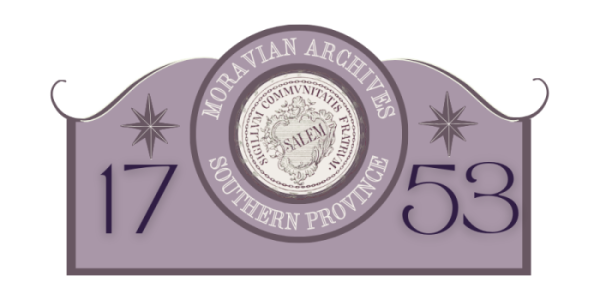Bethania Moravian Church
Bethania has the distinction of being the first planned community of Wachovia, not to take anything away from Bethabara, the first settlement.
It was in the midst of the French and Indian War when Bishop August Gottlieb Spangenberg arrived in Wachovia complete with orders to begin a new community and a name for it: Bethania. On June 12, 1759, he and others rode out to Black Walnut Bottom three miles northwest of Bethabara, and chose a site for the new town. Eight Moravian families were selected to move to the new community, and because they expressed such a love for the Moravian Church, eight families of war refugees living at the Bethabara mill were permitted to settle in Bethania also. Before leaving Wachovia for the last time, Br. Spangenberg formally organized the Bethania congregation on April 13, 1760.
On learning that Spangenberg had allowed “strangers” — non-Moravians — to move into Wachovia’s first planned town, Count Nicholas Ludwig von Zinzendorf, the unquestioned leader of the Moravian Church, pitched a furious tantrum — and died.
Perhaps because of its mixture of Moravians and newcomers, Bethania has always been a congregation of, shall we say, dynamic ferment.
In 1771 a large two-story Gemein House was consecrated to replace the hastily erected 1760 building. By 1790 Bethania had 215 members, and bid fair to rival Salem as a hub of enterprise in Wachovia. A large brick church was erected and consecrated in 1809 (it burned in 1942 but was rebuilt). In 1822 Bethanians began buying the land on which their houses sat (35 years before Salem began doing the same thing). A fire company was formed, a militia company was organized (before Salem), an academy was opened. Why, in 1839 some citizens got the town incorporated (evidently, though, they never acted upon it).
Most important for the Moravian Church as a whole, the Bethania congregation has been very active in outreach. Bethania A.M.E., Olivet, Mizpah, King, and Rural Hall all trace their heritage to the Bethania church “family.” And Bethania has been especially strong in mission endeavor, with the World Mission Shop being only one token of its service.
Moravian Archives, 2002
